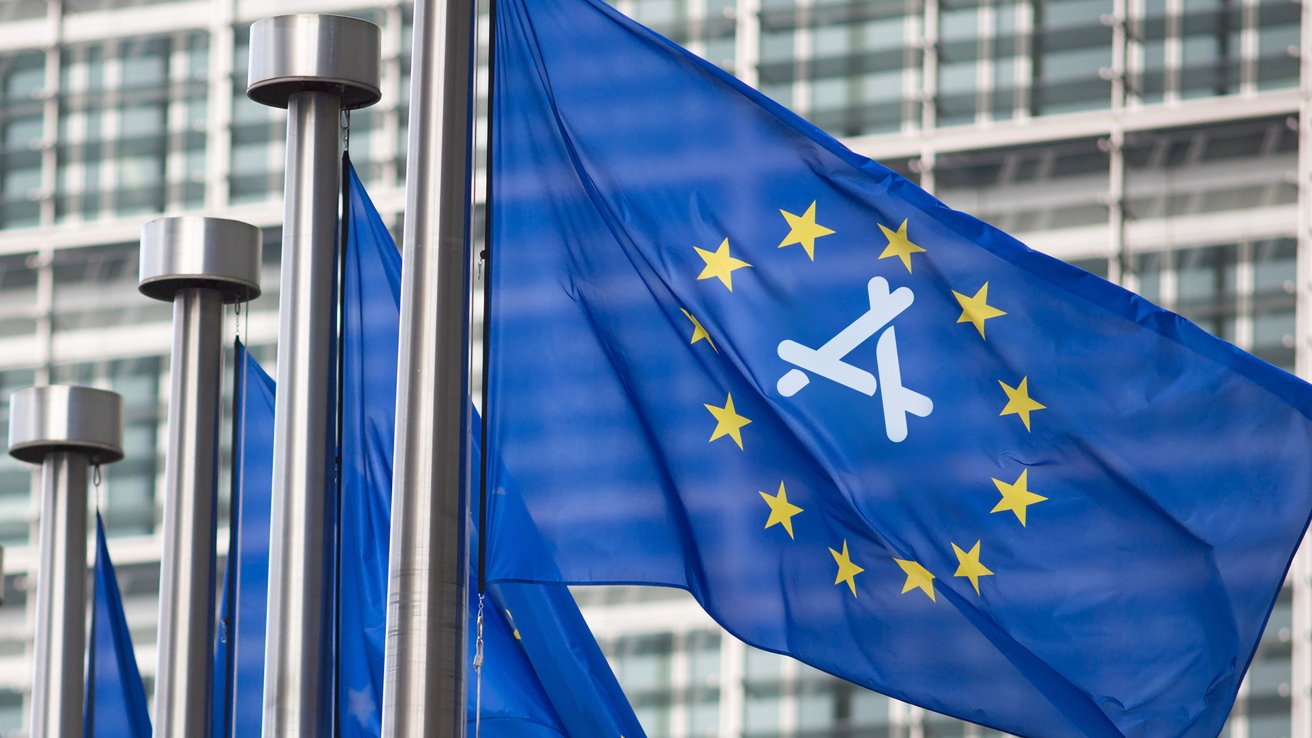The European Union has told Apple to stop geo-locking, where apps and services vary in different countries — entirely ignoring decades of laws and practices by other industries that have nothing to do with the App Store.
Give the EU credit, it has implemented the kind of laws regarding Big Tech that other countries, including the US, are still only talking about. But in this case, its assumption that it can simply mandate how the rest of the entire world works is an excoriating overreach.
The new demand is that Apple stop geo-locking, and specifically that EU users must be able to:
- Use the same interface as in other countries
- Use credit cards registered in different countries
- Download apps not available in their home country
That first point is hard to follow, and the EU's full description is no clearer. It claims that "consumers are only allowed to access the interface made for the country where they have registered their Apple account."
Yet Apple Music is Apple Music wherever you are, it's the music on it that might differ. There are countries where some services such as Apple Music are not available at all, but that doesn't seem to be the EU's point.
The second point about how Apple must stop preventing EU users using credit cards or other payment systems from different countries, is also a bit odd. If you're based outside of the US, you may already be familiar with how no US firm will refuse to take your money.
Which leaves the last part, the issue that Apple must stop the way that "consumers are not allowed to download the apps offered in other countries." This is the part that isn't just odd, it is downright embarrassing because it means the European Union has no clue.
International rights agreements
Forget Apple, this is not an Apple issue. The reason that some apps are not available in some countries is exactly the same as why "Saturday Night Live" is not shown in the UK.
Or why "Star Trek" can sometimes be on Paramount+ in the US, but Netflix in France, and another service entirely in Spain.
Rights to properties like TV shows, films, apps, books, and every single form of media ever created, are intensely complex and no EU demand is going to undo decades of contracts and legal precedent.
Curiously, apps might be the easiest form of media to make available worldwide — in theory. Developers actually have the option to say their app should be released globally when they upload it.
But in practice, if the EU were able to force through this ridiculous idea, developers would be hit as badly as any other creator.
The problem for developers
If you are required to have your app available in every country, you are now bound by the laws of every single country. That includes the tax laws, though if you exclusively sell your app through the App Store, Apple handles the tax.
Except of course the EU has forced Apple to allow third-party app stores. So either those third-party stores would have to take on global tax, or the developers would.
Then few developers actually create absolutely every element of their apps. They might commission graphic designers, they might use stock images, they could licence music.
Every element of every app would have to be cleared for international use if the EU got its way. That's even if an app were for the Cook County Parish Council, it would still have be available everywhere.
How we got here and how we're staying
If media including apps were starting now, maybe the global situation would be different. Maybe all licenses and all tax would be the same.
But it isn't and it's not going to be, no matter what the EU wishes.
For as well as the costs of any individual app or media, there are other issues. DVD region coding was specifically created so that studios had control over when their films were released where.
They might even have wanted to have movies released worldwide instantly, but they can't afford it. Marketing campaigns run in stages, launching movies around the world is an investment that can equal the hundreds of millions of dollars spent on the film's production.
Or take Apple itself. Apple launched Apple Card in the US in 2019 and it appears that according to the EU, that should never have been limited to the States.
The EU constantly says that it is implementing laws explicitly for the good of the consumer and against Big Tech dominance. But developers are consumers too, creators are, marketing people are.
The burden that the EU's move would place on all of them would be unsupportable. Only dominant big tech could possibly afford to release apps or other media.
And if this were even physically possible, such a law change would see every one of them passing the massively increased costs on to the consumer.
Politicians are frighteningly ill-informed
We've seen individual politicians be shockingly, shamefully ignorant of the issues they attempt to pass laws on. But for all the truly superb work that the European Union and the European Commission do, this overreach is a staggering result of what purports to be serious consideration.
Specifically, the EU's document announcing this says that it follows "a coordinated investigation at European level." The Consumer Protection Network (CPC) "of national consumer authorities and the European Commission" is led what is actually described as "competent" national authorities.
According to the EU, Apple now has one month in which to respond and to "propose commitments on how they will address the identified geo-blocking practices."
"If Apple fails to address the concerns raised by the CPC Network, national authorities can take enforcement measures to ensure compliance," continues the EU.
There is a note that depending "on Apple's reply, the CPC Network may enter into a dialogue with the company."
You bet there'll be a dialogue. One side is going to say something along the lines of "in your dreams."
 William Gallagher
William Gallagher







-m.jpg)






 Andrew Orr
Andrew Orr
 Wesley Hilliard
Wesley Hilliard

 Oliver Haslam
Oliver Haslam
 Christine McKee
Christine McKee
 Amber Neely
Amber Neely









44 Comments
The ultimate goal of the EU is to prevent American companies from earning a penny from the EU.
Unless I’m completely misunderstanding something, the EU paper
https://ec.europa.eu/commission/presscorner/detail/es/ip_24_5727
specifically calls for equal access WITHIN THE EU.
I don’t understand the point of this article — it feels like it’s arguing against something that isn’t even on the table.
So the EU wants Apple to ignore US law when it comes to doing business in the European Union. The problem is Apple is an American country and has to comply. All of those “issues” are based off of rules that Apple did not create, the US did, and they have to comply with that. Just like the examples of rights management of content. Credit and debit cards do not always work here in the US, and the reason is the ISSUING bank, not the merchant. The EU has different laws when it comes to using cards and sometimes places like Apple do not want to get involved with regulations and rules that make taking that card more complicated, so the card is outright declined. Even card issuers like AMEX who issue cards to people living in other countries get their cards declined here in the US because of the processing company that the merchant uses. That isn’t Apple’s problem, nor is it their fault.
Deeper than licensing issues, EU countries each have their own laws. The material that is acceptable in Paris or Amsterdam is very different than what is legal in Poland or Hungary. Demanding that Apple, or anyone have one standard that applies to all of the EU simply means that the most repressive, reactionary, governments in the EU get to set the standards all EU citizens must live under. I’m pretty sure that’s NOT what the EU wants.
This is ridiculous. EU car companies are selling the same model of cars at different versions and prices around the world. But they asked others to do it.